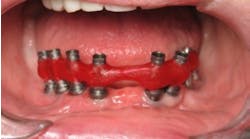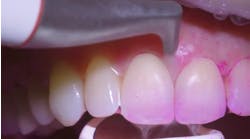Payment Protection Program (PPP) and the Families First Coronavirus Response Act (FFCRA): How they affect your dental office
Many of you have now received your Payment Protection Program (PPP) funds and are looking to rehire your employees. You may have contacted your employees and learned of reports that some of them do not want to return to the dental office because they are being paid more on unemployment. As a business owner, this could affect how much of the PPP loan turns into a grant. It may also affect your ability to operate and the state unemployment insurance (SUI) rate you are charged.
If this is the case, contact an attorney and draft a letter to send to your employees, formally asking them to come back to work. Incorporate legal language to let them know that you may need to hire replacement help in instances of them not wanting to return to work and that their job security is not ensured. If your employees use the coronavirus as a reason for staying home, consult the Families First Coronavirus Response Act (FFCRA) detailed below, which governs these circumstances.
FFCRA
Employees are provided with the following under the FFCRA:
Paid leave entitlements:
Up to two weeks (80 hours or two-week equivalent for part-time employees) of paid sick leave based on the higher of the employee’s regular rate of pay or the applicable state or federal minimum wage paid at these levels:
• 100% for qualifying reasons in nos. 1 through 3 below, up to $511 daily and a maximum total of $5,110
• Two-thirds for qualifying reasons in nos. 4 and 6 below, up to $200 daily and a maximum total of $2,000
• Up to 12 weeks of paid sick leave and expanded family and medical leave paid at two-thirds for qualifying reason no. 5 below, up to $200 daily and a maximum total of $12,000
A part-time employee is eligible for leave for the number of hours that he or she is normally scheduled to work over the stated period.
Qualifying reasons for leave related to COVID-19:
1. Is subject to federal, state, or local quarantine or isolation order related to COVID-19
2. Has been advised by a health-care provider to self-quarantine related to COVID-19
3. Is experiencing COVID-19 symptoms and is seeking a medical diagnosis
4. Is caring for an individual subject to an order described in no. 1 or self-quarantine as described in no. 2
5. Is caring for his or her child whose school or place of care is closed (or childcare provider is unavailable) due to COVID-19–related reasons
6. Is experiencing any other substantially similar condition specified by the US Department of Health and Human Services
What formal letters can tell you
Formal letters containing an offer for employment and rehiring can solve many things. First, you will find out who wants to be part of your operation going forward and who does not. Second, if you make them the offer to come back to work at your dental practice legally and they choose not to, you can protest their unemployment so that it does not affect your SUI experience rating. Third, if they choose to use the FFCRA, the payments you make to them are covered under the PPP rules to make the loans grants.Editor’s note: This article originally appeared in Perio-Implant Advisory, a newsletter for dentists and hygienists that focuses on periodontal- and implant-related issues. Perio-Implant Advisory is part of the Dental Economics and DentistryIQ network. To read more articles, visit perioimplantadvisory.com, or to subscribe, visit dentistryiq.com/subscribe.









